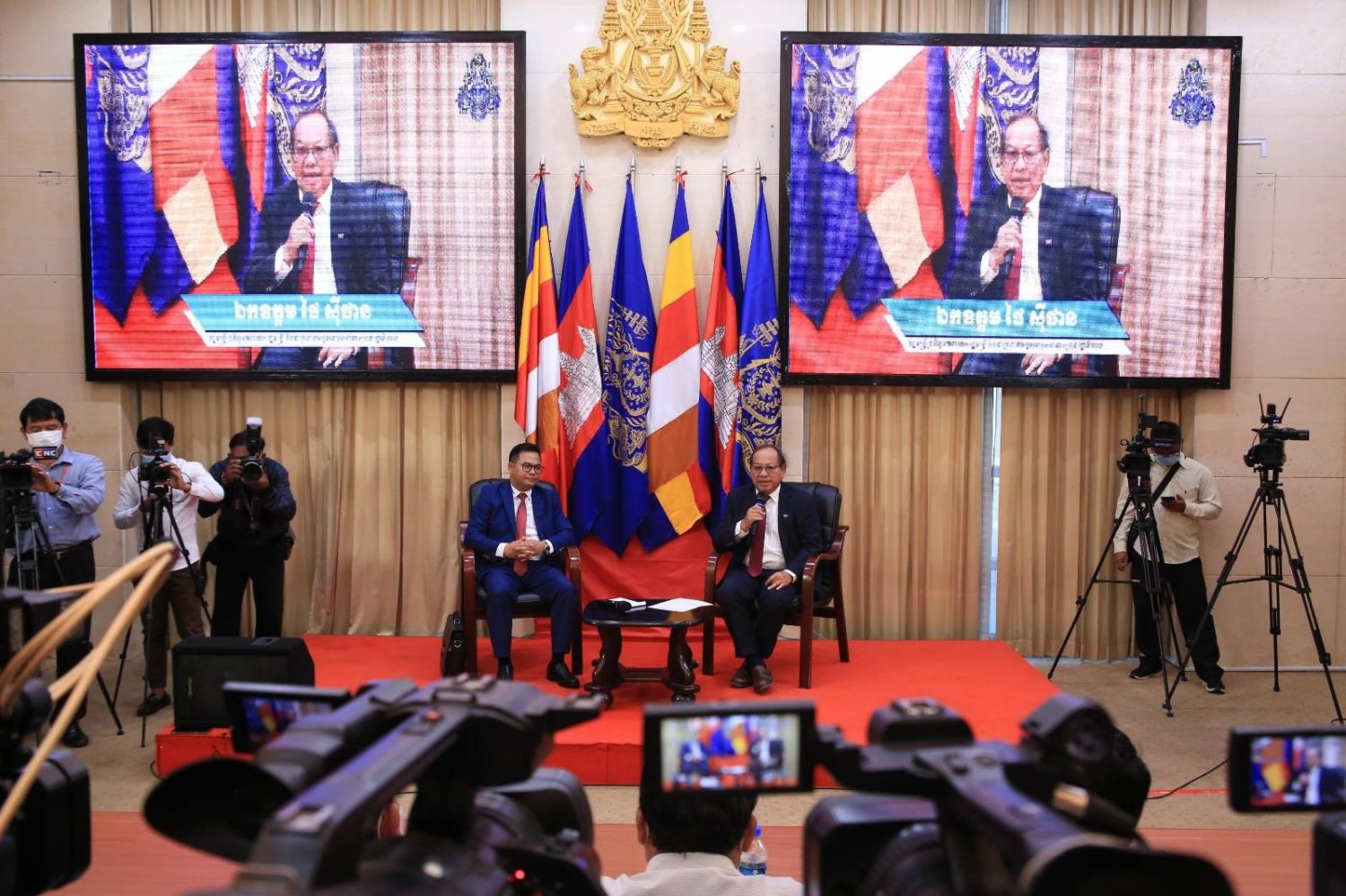A government press conference Wednesday morning about Justice Ministry work included the attendance of human rights NGOs — a rare sight that a spokesman said he hoped would be the start of a “culture of dialogue.”
The presser, held at the Council of Ministers in Phnom Penh, discussed recent, high-level Justice Ministry work such as the opening of provincial appeal courts. Joining the conference at the same table as reporters were representatives of human rights NGOs Adhoc and Licadho.
During the meeting, government spokesman Phay Siphan and Justice Ministry spokesman Chin Malin sat on a raised platform in front of the rest of the attendees. Siphan said the day’s press conference was organized with invitations to civil society in order to share issues face-to-face.
“By my observation, non-governmental organizations encounter problems but they do not understand the mechanism and principles to solve them,” he said. “Sometimes for some work, we do not know the hard work being done by the government to solve the problem, and how far it has gone. … It is not completely black, but there is also some gray and other things, so today we’ve organized it like this.”
Siphan lamented that the Cambodian Center for Human Rights and urban rights NGO Sahmakum Teang Tnaut were not present.
“We regret it, and we talk about human rights but the Center for Human Rights does not come — we have nothing to say and do not understand, and we would appeal to them again to come to attend to express their views face-to-face,” Siphan said.
CCHR director Chak Sopheap said she had only received an invitation to an earlier canceled event, and not the one held on Wednesday.
The Justice Ministry spokesman Malin said he welcomed the new press conference format.
“This time the organizing is a little unusual in that we have invited civil society to come, and we have seen their positive reply in attending. And this is the start of a culture of dialogue between the civil society and spokespersons of the government,” Malin said. “It is good that we sit and talk with each other and exchange views.”
The ministry acknowledged the need for reforms, Malin added.
“We continue to make reforms when there are problems with the judicial system. If there were no problems, there would be no need for reforms, so it means that we acknowledge that there are problems in the judicial system,” he said.
Adhoc representative Phin Savey took the chance to defend his NGO against any accusation that it only serves donors’ agendas, but also spoke of a lack of confidence in the justice system.
“Many people are still scared of the court system,” Savey said. “When they hear the court has summoned them, they are scared. It means that they have lost hope in the court system.”
Licadho spokesman Am Sam Ath said after the conference that it was the first time his NGO had received an invitation, but it was good to bridge the distance between government and civil society.
“[Local authorities] are concerned and sometimes they have their own mindset that civil society is an opposition party, but in fact it is not like that. This is a different interpretation and understanding,” Sam Ath said, adding that he hoped there would be less vilifying between the two sides.
“If we could get rid of the culture of smearing it would be great because we have the same aims.”













